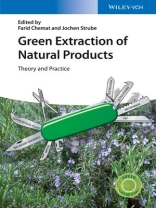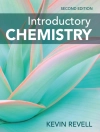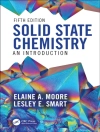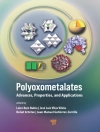Extraction processes are essential steps in numerous industrial applications from perfume over pharmaceutical to fine chemical industry. Nowadays, there are three key aspects in industrial extraction processes: economy and quality, as well as environmental considerations. This book presents a complete picture of current knowledge on green extraction in terms of innovative processes, original methods, alternative solvents and safe products, and provides the necessary theoretical background as well as industrial application examples and environmental impacts. Each chapter is written by experts in the field and the strong focus on green chemistry throughout the book makes this book a unique reference source. This book is intended to be a first step towards a future cooperation in a new extraction of natural products, built to improve both fundamental and green parameters of the techniques and to increase the amount of extracts obtained from renewable resources with a minimum consumption of energy and solvents, and the maximum safety for operators and the environment.
Table des matières
Green Extraction: From Concepts to Research, Education and Economical Opportunities
Process Engineering and Product Design for Green Extraction
Tailormade Production of Plants for Green Extraction
Mass Transfer Enhancement for Solid-Liquid Extractions
Fundamentals of Process-Intensification Strategy for Green Extraction Operations
Panorama of Sustainable Solvents for Green Extraction Processes
Supercritical Fluid Extraction: A Solvent with Variable Geometry
Water as Green Solvent for Extraction of Natural Products
Comprehensive exploitation of residues from olive oil, wine, citrus juice and related agriculture
Selective Extraction from Food Plants and Residues by Pulsed Electric Field
Green Extraction of Artemisinin from Artemisia annua L.
A propos de l’auteur
Farid Chemat is a full Professor of Chemistry at Avignon University (France), Director of GREEN Extraction Team (alternative extraction techniques and solvents), co-director of ORTESA Lab Com research unit Naturex-UAPV, and scientific coordinator of ‘France Eco-Extraction’ dealing with dissemination of research and education on green extraction technologies. Born in 1968, he received his Ph D degree in process engineering from the Institut National Polytechnique de Toulouse-France in 1994. After periods of postdoctoral research work with Prolabo-Merck (1995-1997), he spent two years (1997-1999) as a senior researcher at the University of Wageningen (The Netherlands). In 1999, he moved to the University of La Réunion (France DOM) as an assistant professor and since 2006 holds the position of Professor at the University of Avignon (France). His main research interests are focused on innovative and sustainable extraction techniques, protocols and solvents (especially microwave, ultrasound and bio-based solvents) for food, pharmaceutical, fine chemistry, biofuel, and cosmetic applications. His research activity is documented by more than 140 scientific peer-reviewed papers, 9 books and 7 patents.
Jochen Strube is a full Professor of Chemical and Biotechnology Engineering and Director of the Institute for Separation and Process Technology at Clausthal University of Technology (Germany). Together with Hansjörg Hagels from Boehringer Ingelheim he currently leads the German working group of industry and academics for ‘Plant-based Extraktion — Products and Process’ of Process Net at Dechema e.V. Frankfurt am Main. Born in 1965, he received his Dr.-Ing. (1992) and Habilitation/’venia legendi’ (2000) degree in Chemical Engineering at the University of Dortmund. From 1999 – 2006 he worked for Bayer AG Leverkusen, Germany. Since 2006 he has been Director of the Institute for Separation and Process Technology in Clausthal. His main research interests are focused on predictive model-based design of separation processes for complex mixtures such as plant-based extracts or fermentation broths and validation with mini-plant technology. Under his initiative the institute was re-directed with a fully equipped mini-plant technology under ATEX for industrial applications of higher value products in regulated environments like pharmaceutics, biologics, botanics, cosmetics, flavors, nutrition and nutraceuticals etc. His research activity is summarized by over 130 scientific peer-reviewed papers, 9 books and 6 patents.












